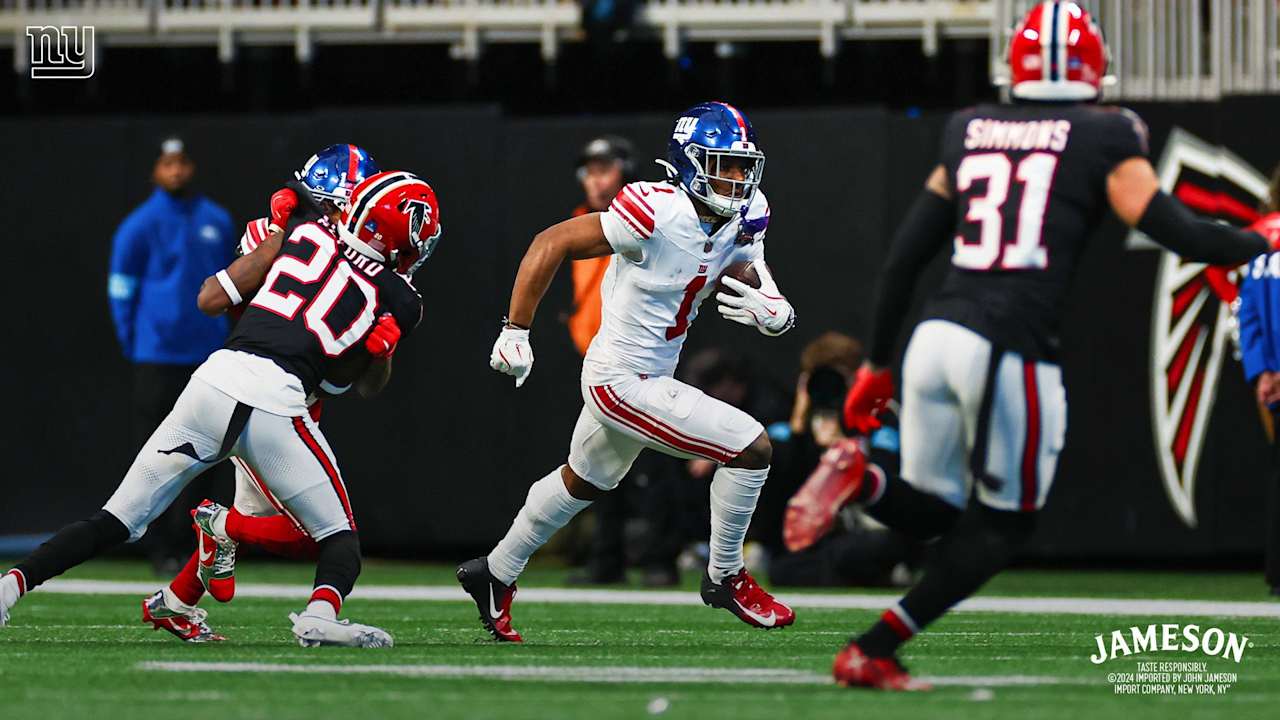NFL
Jets can’t succumb to NFL’s joint-practice fighting problem

It’s a fine line for all NFL teams at this time of year, when thermometer readings rise along with the pressure for players trying to make rosters or win starting jobs.
It’s a line NFL coaches don’t want their players to cross, and yet it’s a line that seems to have been crossed too often of late.
This week, the Giants and Lions crossed it in two joint practices, to the point both teams Wednesday were fined $200,000 by the league, which obviously doesn’t like the look.
The Jets, who had three different skirmishes amongst their own players in Tuesday’s practice, will conduct a joint practice with the Washington Commanders on Thursday in advance of their preseason opener Saturday at MetLife Stadium.
Jets head coach Robert Saleh often uses the word “violence’’ when describing the way he wants his players to play. Saleh, though, wants that violence to be controlled.
He said, both after Tuesday’s practice and on Wednesday, that he’s not concerned about tempers flaring in Thursday’s joint practice with the Commanders. But that practice surely will be scrutinized.
All NFL teams were reminded in a memo issued by the league last month that “fighting and unprofessional conduct at joint practices would not be tolerated.” The league clearly has placed an increased emphasis on keeping the joint sessions clean.
In theory, those heavy fines levied against the Giants and Lions will serve as a deterrent for teams like the Jets and Commanders and others conducting these similar practices. If they don’t, then you might see a time when the joint practices go the way of the two-a-day practice days that were once commonplace in NFL camps. But two-a-days became extinct after the 2011 collective bargaining agreement thanks to NFL Players Association demands.
This is one reason for the increased joint practices teams have been conducting in recent years. They’re a way to add some more physicality to practices in an effort to simulate game conditions.
But many teams, including the Jets, have virtually eliminated physical drills such as team goal-line situations and one-on-one pass-rushing in an effort to avoid injuries and more camp scuffles.
Saleh last summer abruptly canceled a scheduled second joint practice session with the Tampa Bay Buccaneers, seemingly to protect his players. The move irked the Buccaneers, who’d traveled to New Jersey for the two sessions and were left scrambling to find a place to practice in place of the day the Jets bailed on.
There were more than a dozen scuffles during the two days of joint practices between the Giants and Lions. The two teams cut practice short Tuesday because of multiple incidents.
“It’s the same thing we always tell our guys — we’re just trying to get better, trying to compete,’’ Saleh said Wednesday. “It is heightened for sure, but … I know DQ [Washington coach Dan Quinn]. He and I have a really good relationship. I know the way he coaches, he knows the way we coach, and I’m not overly concerned.
“Are there going to be a couple of shoving matches? I’m sure, but … we do our best not to punch. I know we haven’t been great at it here since [Tuesday’s practice], but that’s the big rule — just don’t punch.
“You’re going to get into these shoving matches, but like I’ve told our guys, if you throw a punch, you’re kicked out of a game, so don’t do it in practice.’’
Veteran defensive lineman Quinnen Williams echoed his coach’s message.
“The biggest thing is to keep the main thing the main thing,’’ Williams said. “It’s going to be hot outside. It’s going get feisty. But if you throw a punch in a game, you’re out of the game. Me, C.J. [Mosley], Sauce [Gardner], Jermaine [Johnson], Quincy [Williams], the leaders, we speak to the defense and we treat every single practice like a game when it comes down to flags and execution.
“Joint practice is another day to work on being disciplined.’’
Veteran backup quarterback Tyrod Taylor, who played for the Giants last season, was well aware of the goings on at the Meadowlands earlier in the week. He knows how unproductive fights in joint practices can be.
“That’s the furthest from what teams are trying to get done,’’ Taylor said. “It’s about competing within the whistle. Obviously, at this point in time guys have been practicing in training camp for at least two weeks, so emotions are high, energy is high.
“Anytime you go against another group of guys that’s not your own brothers and family, it’s going to be part of that. Unfortunately, it happens, but it’s part of the game.’’
It’s a part of the game that needs to be eliminated … or else these joint practices will be. And then training camps will become so soft they’ll resemble more of a participation-prize children’s camp.










